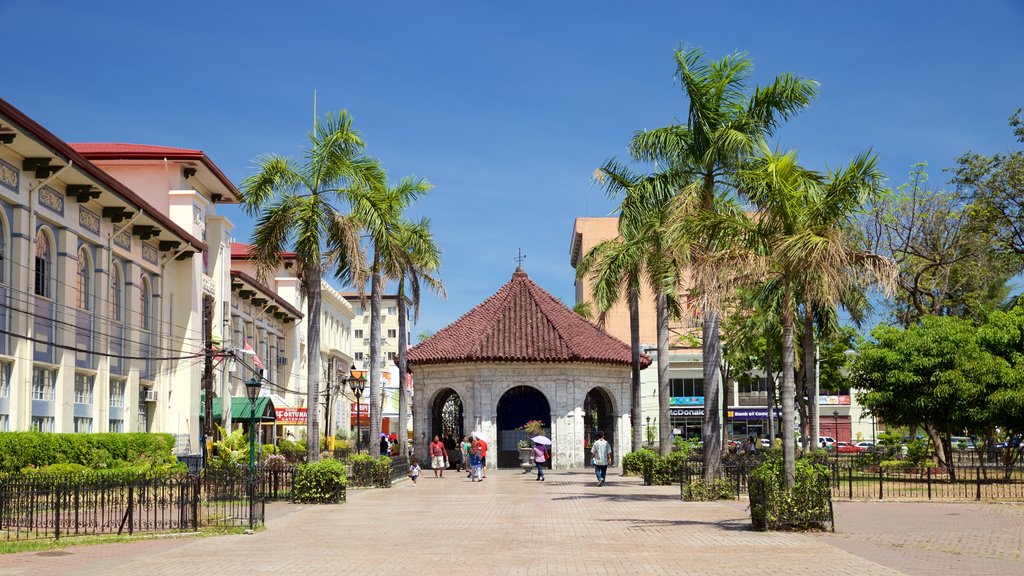
Are you curious about the latest updates on the minimum wage in Cebu? Wondering how it will affect the lives of workers in the region? Look no further! In this article, we will dive into the details of the updated minimum wage rates in Cebu for the year 2024. Discover the implications of these changes and gain a comprehensive understanding of the wage laws and labor regulations in Cebu.
Key Takeaways:
- Stay informed about the latest minimum wage rates in Cebu for 2024.
- Understand the implications of the minimum wage increase on workers in the region.
- Explore the wage laws and labor regulations that govern minimum wages in Cebu.
- Gain insights into the regional variations in minimum wages across the Philippines.
- Analyze the impact of inflation and the cost of living on salary standards in Cebu.
Understanding the New Minimum Wage Cebu Legislation
Gain a comprehensive understanding of the new legislation regarding the minimum wage in Cebu. Explore the laws and regulations that govern minimum wage rates in the region and how they impact workers and employers.
The new minimum wage Cebu legislation has been implemented to address the growing concerns regarding fair compensation for workers in the region. These laws and regulations aim to establish a standard wage that provides a decent living for employees while considering the economic conditions and the needs of businesses.
Under the minimum wage laws Cebu, employers are required to pay their employees a minimum wage that meets or exceeds the prescribed rates set by the legislation. This ensures that workers receive fair compensation for their labor and helps uplift the overall quality of life for individuals and families in Cebu.
The minimum wage regulations Cebu provide guidelines on how the minimum wage rates are determined and adjusted. These regulations take into account various factors such as inflation, cost of living, regional economic conditions, and the recommendations of labor groups and stakeholders. The legislation also establishes mechanisms for periodic review and adjustment of the minimum wage rates to ensure their continued relevance and effectiveness.
| Laws and Regulations | Impact on Workers | Impact on Employers |
|---|---|---|
| Minimum wage laws Cebu | Ensures fair compensation for workers | Ensures compliance and fair treatment of employees |
| Minimum wage regulations Cebu | Considers economic conditions and needs of workers | Provides guidelines for adjusting minimum wage rates |
Minimum Wage Cebu: A Deep Dive into 2024's Adjustments
In this section, we will delve into the adjustments made to the minimum wage in Cebu for the year 2024. By comparing past and present minimum wage rates, examining regional variations in minimum wages across the Philippines, and understanding the role of wage orders in setting local minimum wages, we can gain a comprehensive understanding of the changes in Cebu's wage landscape.

Comparing Past and Present Minimum Wage Rates
It is essential to analyze how the minimum wage rates in Cebu have evolved over time. By comparing the past and present rates, we can identify the magnitude of the adjustments and assess their impact on workers' earnings. By understanding these changes, we can glean insights into the overall trends shaping Cebu's wage structure.
Regional Variations in Minimum Wages Across the Philippines
The Philippines is comprised of different regions, each with its unique economic circumstances. As such, there may be variations in minimum wage rates across different provinces and cities. By examining these regional variations, we can explore the factors influencing the differences and analyze the implications for workers and businesses within Cebu.
The Role of Wage Orders in Setting Local Minimum Wages
Wage orders play a crucial role in establishing local minimum wages. These orders are issued by regional wage boards and take into account various factors such as cost of living, inflation rates, and economic conditions. Understanding how wage orders are formulated and implemented provides valuable insights into the process of determining minimum wage rates in Cebu.
Region | Minimum Wage Rate |
|---|---|
Metro Manila | PHP 610 |
Cebu | PHP 435 |
Northern Mindanao | PHP 438 |
Table 1: Regional minimum wage rates in the Philippines
As illustrated in the table above, there are variations in minimum wage rates across different regions in the Philippines. These differences reflect the unique economic dynamics and cost of living in each area.
The Role of Salary Standardization Law in Cebu's Wage Hike

Understanding the impact of the Salary Standardization Law on the recent wage hike in Cebu is essential for both workers and employers. This legislation plays a crucial role in determining the minimum wage rates and ensuring fair compensation for employees.
Understanding Tranche Payment System for Wage Increase
The Salary Standardization Law implements a tranche payment system for wage increases in Cebu. This system divides the wage hike into multiple stages or tranches, allowing for a gradual and sustainable adjustment of wages over time. The purpose of this system is to minimize the abrupt impact on businesses while providing gradual improvements in workers' income.
Under this tranche payment system, the wage increase is implemented in increments, typically over a specific period. Each tranche corresponds to a percentage increase in the minimum wage, allowing employers to plan and adjust their budgets accordingly.
"The tranche payment system ensures that wage increases are aligned with the financial capabilities of businesses, promoting economic stability and sustainability. It strikes a balance between providing better remuneration for workers and protecting the viability of enterprises."
Projecting Future Minimum Wage Trends in the Philippines
Projections for future minimum wage trends in the Philippines indicate ongoing increases in line with the Salary Standardization Law. As the cost of living rises and the demand for fair wages intensifies, it is expected that minimum wage rates will continue to be adjusted to meet the needs of workers in Cebu and across the country.
Year | Minimum Wage Increase |
|---|---|
2023 | PHP 610 |
2024 | PHP 610 |
2025 | PHP 680 |
These projections indicate a steady upward trend in minimum wage rates, reflecting the government's commitment to addressing income inequality and improving the standard of living for workers in Cebu and beyond.
How Inflation and Cost of Living Affect Cebu Salary Standards
When analyzing the impact of the minimum wage in Cebu, it is essential to consider the influence of inflation and the cost of living. These factors play a significant role in determining the purchasing power of workers and the adequacy of their salaries.
Analyzing the Purchasing Power of the Updated Minimum Wage in Cebu
The purchasing power of the updated minimum wage in Cebu is directly affected by inflation. As prices rise due to inflation, the value of the wage decreases in real terms. Workers may find it challenging to meet their basic needs and maintain a decent standard of living without regular adjustments to their wages.
By analyzing the relationship between the minimum wage and inflation, policymakers can better understand the economic realities faced by workers in Cebu. This analysis helps determine whether the current wage rates are sufficient to provide a living wage.
Cost of Living Adjustments and Wage Increases
In response to the impact of inflation and the rising cost of living, there is a need for regular cost of living adjustments and wage increases. These adjustments aim to ensure that workers' salaries keep pace with the changing economic conditions and maintain their purchasing power.
Cost of living adjustments consider essential expenses such as housing, food, transportation, healthcare, and education. By incorporating these factors into wage calculations, policymakers can create a fair and equitable system that supports workers' financial well-being.
Furthermore, wage increases, particularly for workers earning the minimum wage, are crucial to uplift their living standards and bridge the gap between their income and the cost of living. A higher minimum wage can provide workers with more financial security and allow them to afford basic necessities without struggling.
Navigating Cebu Labor Regulations and Wage Laws
When it comes to labor regulations and wage laws, it's essential to have a clear understanding of the legal framework in Cebu to ensure compliance and protect the rights of both employers and employees. These laws play a crucial role in maintaining fair and equitable employment practices in the region.

Understanding Labor Regulations in Cebu
Cebu, like the rest of the Philippines, operates under the labor regulations set by the Department of Labor and Employment (DOLE). These regulations cover a wide range of areas, including but not limited to:
- Minimum wage requirements
- Working hours and rest periods
- Overtime pay
- Leave benefits (such as sick leave, vacation leave, and maternity/paternity leave)
- Employment contracts
- Termination and severance pay
- Health and safety standards
It's important for employers and employees alike to familiarize themselves with these regulations to ensure compliance and avoid any potential legal issues.
Understanding Wage Laws in Cebu
Wage laws in Cebu are primarily governed by the Regional Tripartite Wages and Productivity Board (RTWPB), in accordance with the provisions of the Labor Code of the Philippines. The RTWPB is responsible for setting the minimum wage rates for various sectors and regions, taking into consideration factors such as the cost of living, productivity, and economic conditions.
Employers are legally required to pay their employees at least the minimum wage rate set by the RTWPB. Failure to do so may result in penalties and legal repercussions. On the other hand, employees have the right to receive fair compensation for their work and can seek redress if their wages are not in line with the established minimum wage rates.
It's crucial for employers to stay updated on any changes to wage laws in Cebu to ensure compliance and avoid any potential violations.
Conclusion
In conclusion, the latest update on the minimum wage in Cebu for 2024 brings both opportunities and challenges for workers and employers in the region. We have explored the new legislation and the adjustments made to the minimum wage rates, highlighting the regional variations and the role of wage orders in setting local standards. The Salary Standardization Law plays a crucial role in the wage hike, and understanding the tranche payment system is essential.
In addition, we have discussed the impact of inflation and the cost of living on salary standards and the need for cost-of-living adjustments and wage increases. Navigating the complex landscape of Cebu's labor regulations and wage laws is crucial for both employers and employees to ensure compliance and protect their rights.
FAQ
What is the current minimum wage rate in Cebu for 2024?
The current minimum wage rate in Cebu for 2024 is P610 pesos per day for non-agricultural workers and P573 pesos per day for agricultural workers.
What are the laws and regulations that govern minimum wage rates in Cebu?
The laws and regulations that govern minimum wage rates in Cebu include the Wage Order issued by the Regional Tripartite Wages and Productivity Board (RTWPB) and the Labor Code of the Philippines.
How have the minimum wage rates in Cebu changed over time?
The minimum wage rates in Cebu have undergone adjustments over time to keep up with the changing economic conditions. These adjustments ensure that workers receive fair compensation for their labor.
Are there variations in minimum wages across different regions in the Philippines?
Yes, there are variations in minimum wages across different regions in the Philippines. Each region has its own set of wage orders that determine the minimum wage rate applicable in that particular area.
How does the Salary Standardization Law contribute to the wage hike in Cebu?
The Salary Standardization Law sets the framework for the wage hike in Cebu and other parts of the Philippines. It outlines the tranche payment system for wage increases and provides guidelines for future minimum wage trends.
How do inflation and the cost of living impact salary standards in Cebu?
Inflation and the cost of living have a significant impact on salary standards in Cebu. The purchasing power of the updated minimum wage is affected by these factors, which necessitate periodic cost of living adjustments and wage increases.
